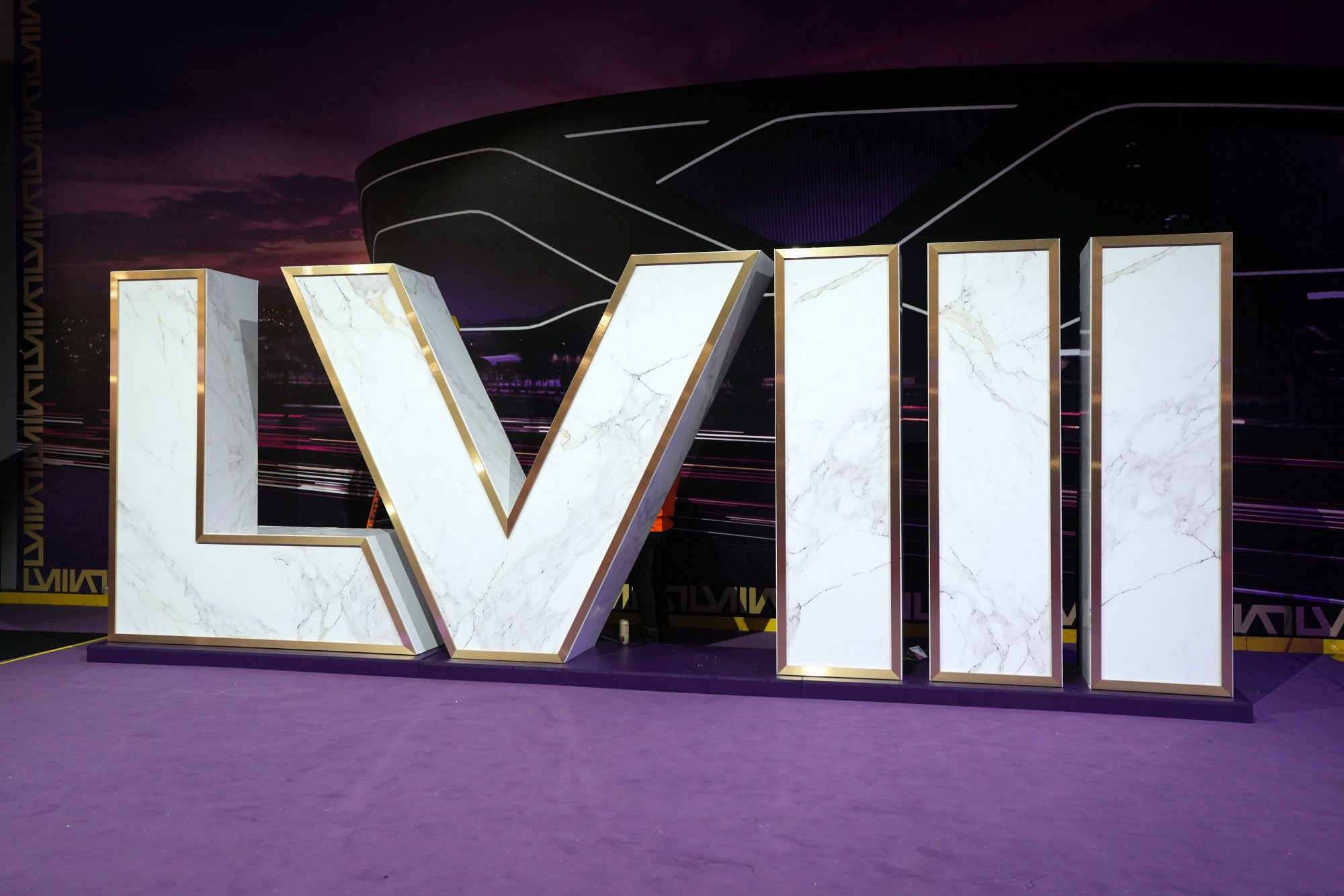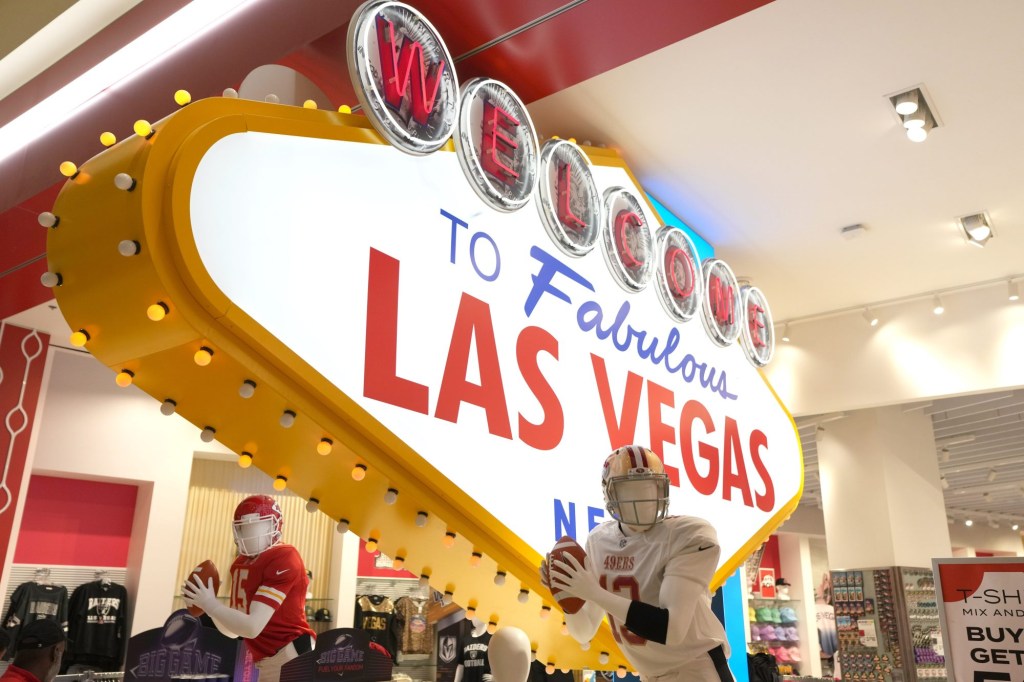Does the Vegas Super Bowl Make Economic Sense? Depends Where You Get Your Figures
- The economic impact on Super Bowl LVIII—already a thorny subject—gets tricky when you consider Vegas’s vitality on a nonfootball weekend.
- Hotels tend to be filled, anyway, and gamblers will be drawn out of—not into—casinos on game day. And don’t even bring up the Lunar New Year.

Does today’s Super Bowl, and the festive week that preceded it, make economic sense for Las Vegas? After all, the hotels in Vegas tend to be fully occupied on the weekend of the last game of the year, anyway—and the game itself will draw gamblers, particularly the so-called whales, out of casinos, not into them. So it will be interesting to see whether the Vegas business world gets on board for another run at hosting the top annual sporting event in the U.S.
Boosters of the game foresee a historic economic impact from the week. A projected 150,000 extra visitors will spend an average of four to five times the typical tourist expenditure—that’s what Jeremy Aguero, a principal at the consulting firm Applied Analysis who is on the Las Vegas Super Bowl Host Committee, told reporters last week on a call organized by the U.S. Chamber of Commerce.
“We think about it in gross terms, [where] the total amount of spending activities [are] about $1.1 billion. If we think about it in terms of the net, after we have the displacement effect, it’s something closer to about 800 million dollars in impact.”
That displacement effect is what sports economists contend is the problem with these economic calculations. One can’t just look at the total dollars spent—any estimate has to consider the gap between that figure and what would have been spent anyway. In Vegas, a tourist town, the latter figure is already a big number to begin with.
“We sell out every Super Bowl weekend,” Aguero said. “So there is a displacement effect.” Aguero calculates a small effect by imputing the far heavier spending by Super Bowl visitors.
But it’s unclear from where Aguero and the host committee derived the stat that Super Bowl visitors spend as much as five times the $1,100 average allocated on a normal Vegas trip.
Sports economist J.C. Bradbury believes he has a good idea where that comes from. “A lot of times, the numbers come from [them] just doing a survey,” Bradbury says. “But the person who’s doing the survey is motivated to find the answer. … There is a cottage industry of consultants who are always getting you the biggest number and multiplying it times three or five or something.”

Sports economist Andrew Zimbalist, who in the past has feuded with Bradbury over the subject of economic impact reports, agrees with his rival here. “Most economists who have looked at that usually say, at best: What you should do is move the decimal point to the left one,” he says. “So instead of it being, you know, $300 million, the better estimate would be $30 million.”
The rationale for that multiple is that Super Bowl attendees are wealthy and so they spend more, says Victor Matheson, a sports economist at Holy Cross. The problem with this logic: Sports fans are replacing gamblers, and the usurpers are more apt to spend money in restaurants and retail, lower-margin businesses, than in casinos.
Matheson identifies another issue: yesterday’s Lunar New Year. “Chinese New Year is a gigantic gambling weekend for Vegas normally. In 2007 the NBA had the All-Star Game in Vegas on Chinese New Year weekend,” he says, “and every casino on the Strip said, ‘Never again will we have another sporting event on Chinese New Year, because it was a disaster for our bottom line. We replaced all of these high-roller gamblers with sports fans who are more interested in watching sports than they are in gambling.’
“They blamed an entire quarter of bad results on a sporting event [coming to town during] Chinese New Year. And here we are, 15 years later. Apparently no one remembers that they said, ‘Never again.’”
A counter: Mary Beth Sewald, the president and CEO of the Vegas Chamber of Commerce, told reporters on the Aguero call that the city could not afford the advertising it would take to equal the amount of free publicity it is receiving during the Super Bowl lead-up. And Aguero pointed to the 300 events that occurred in the past week as evidence of economic impact.
Plus, some casinos touted the exposure that the game brings, the stamp of approval, and the projected record gambling handle. “We’ve been waiting for this one for a long time to showcase us as not just an entertainment capital but as a sports capital,” says Dave Horn, the GM of Durango Casino. “I suspect that this handle could be a record breaker.”
The Las Vegas Convention and Visitors Authority offered a preliminary estimate of $500 million in impact, and Brendon Plack, the NFL’s senior vice president of public policy and government affairs, told reporters on the call last week that the final number would be historic. “We’ll know in a few weeks what the tale of the tape says, but we’re expecting a really, really successful weekend.”
What would a record-breaking economic impact look like? Taking these reports with a huge grain of salt, the host committee for last year’s Super Bowl in Phoenix claimed $1.3 billion in economic activity. That’s far and away the highest one of these economic impact figures for Super Bowls. The Super Bowl before that, in Los Angeles, according to that host committee, produced an impact between $234 million and $477 million.
Aguero noted that inflation will produce higher figures than in the past. That said, in Vegas, which bills itself as the entertainment capital of the country, it’s hard to imagine there is not a great displacement effect in a city that already draws so many high rollers.
“If they were having the Super Bowl in Detroit,” says Zimbalist, “it would have a different effect.”
Discover more from ReviewFitHealth.com
Subscribe to get the latest posts sent to your email.